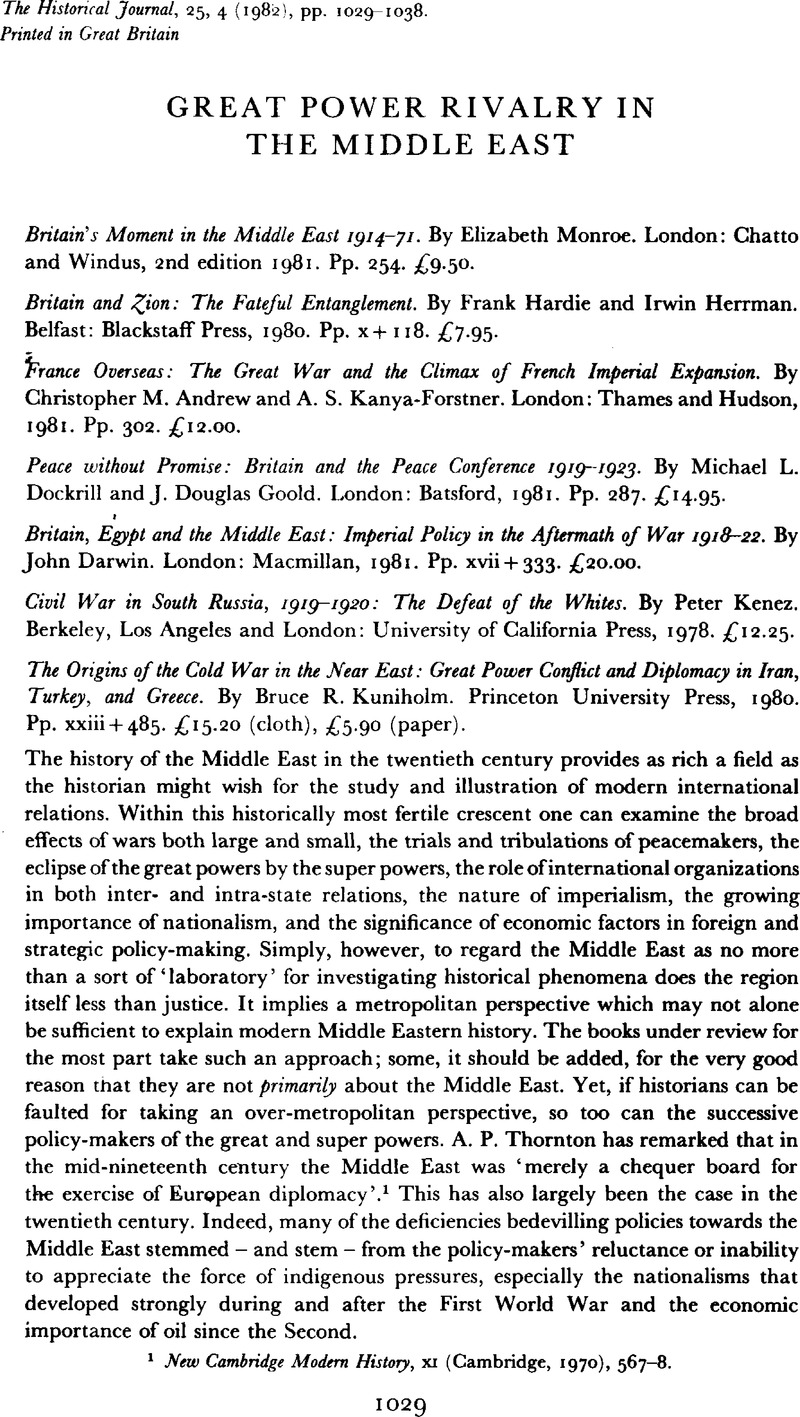Published online by Cambridge University Press: 11 February 2009

1 New Cambridge Modern History, xi (Cambridge, 1970), 567–8.Google Scholar
2 Eastern committee 41st meeting, P.R.O. CAB. 27/24.
3 Curzon to Balfour, 20 Aug. 1919, Curzon papers, India Office Records, F. 112/208 (a).
4 Doreen, Ingrams (ed.), Palestine papers 1917–22 (London, 1972), pp. 77–8.Google Scholar
5 George, David LloydWar memoirs (Odhams edn, London, n.d), 11, 1333.Google Scholar
6 Draft memo, by Sir A. Hirtzcl, 14 Feb. 1919, Montagu papers, Trinity College, Cambridge, AS/IV/4/751.
7 Darwin has extended this argument throughout the inter-war years in ‘Imperialism in Decline? Tendencies in British imperial policy between the wars’, Historical Journal, 23, 3 (1980), 657–79.CrossRefGoogle Scholar
8 Cabinet meeting, 17 November 1920, P.R.O. CAB 23/23/61 (20).
9 Chiefs of staff committee, 12 July 1946, P.R.O. CAB 21/2086, no. 24.
10 The title of D. C. Watt's 1981 Wiles Lectures, to be published in 1983 by Cambridge University Press under the title Succeeding John Bull.